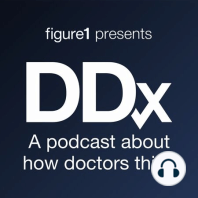11 min listen
ALS, DMD and Adapting Treatment Mechanisms for Genetic Variations
FromDDx
ratings:
Length:
11 minutes
Released:
Mar 16, 2022
Format:
Podcast episode
Description
In this episode, we’ll dig into the different mechanisms by which gene therapy can potentially treat specific genetic diseases – such as amyotrophic lateral sclerosis, or ALS, and others.In 1993, a multinational group of scientists and doctors solved a medical mystery 150 years in the making.And they did it, in part, by examining the genealogy of a particular family in Vermont. In 1835, a farmer named Erastus Farr died of a mysterious illness characterized by a progressive weakening of his muscles followed by paralysis and respiratory failure.Thirty years later, his descendent Samuel Farr died of the same condition, as did four of Samuel’s eight children, the youngest at the age of 27. By 1880, the Canadian physician Sir William Osler had studied the Farr family phenomenon and concluded that they all suffered from a newly identified disease known as amyotrophic lateral sclerosis.But how could this frightening condition be passed from one generation to the next?Over the next hundred years, scientific interest in the disease grew, especially after the legendary baseball player Lou Gehrig died of the disease in 1941.But there was still a mystery: while 90% of ALS cases are considered sporadic – meaning there is no hereditary connection – the other 10% of cases seemed to run in families, like the Farrs.After the dawn of the genetic age, scientists began to suspect a gene variation was at the heart of the mystery. And then finally, in 1993, scientists including Robert Brown at the University of Massachusetts medical school, who studied the Farr family and others while also investigating the human genome, uncovered the answer.In some ALS patients, a variant of a single gene, called SOD1, can cause a buildup of toxic proteins in the brain, leading to the various symptoms that characterize the disease. In this case, the goal of gene therapy is to block or silence the abnormal production of a protein.And solving that mystery has paved the way for gene therapy, perhaps someday soon, to provide the first known treatment for familial ALS.For more education on gene therapy, visit www.genetherapynetwork.com.
Released:
Mar 16, 2022
Format:
Podcast episode
Titles in the series (58)
Anchoring bias and the frequent flyer.: A 19-year-old with sickle cell disease is well-known to ER doctors as a "frequent flyer". Every time they see her it's due to chronic pain related to her disease. Except for the one time it isn't. For related photos, medical cases and links to... by DDx
